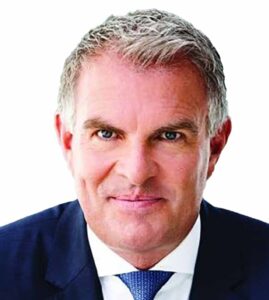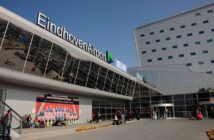
Lufthansa Group has delivered a strong second-quarter performance for 2025, surpassing analyst expectations and reinforcing its recovery trajectory in a turbulent aviation sector. The German airline conglomerate reported an adjusted operating profit (EBIT) of €871m, a 27pc increase from €686m in the same period last year, beating the consensus forecast of €805m.
Revenues rose by 3pc to €10.3bn, driven by a 3.8pc increase in available seat kilometres and robust demand, particularly on transatlantic routes. The group handled 37m passengers, up 3pc from 35.9m in Q2 2024, despite a slight decline in passenger load factor to 82.0pc.
The results were bolstered by several key factors, including low oil prices, favourable currency effects, and a doubling of the operating result in the logistics segment, with Lufthansa Cargo’s revenues climbing 3pc to €820m. The maintenance division, Lufthansa Technik, achieved record performance, generating €2bn in revenue. The group’s investment in Italy’s ITA Airways contributed €91m to the adjusted EBIT, reflecting a strategic push into Southern Europe. However, the passenger airlines segment faced yield pressure, with passenger yields dipping 1.5pc year-on-year, particularly on short-haul routes. Operational stability improved significantly, with 99pc flight regularity and an 8-percentage-point gain in punctuality, reducing financial irregularity costs by 28pc.
Lufthansa’s stock reacted positively, rising 2.7pc to €7.69 by midday on 31 July, building on a 9.41pc surge following Q1 results earlier this year. The share price, which hit a quarterly high of €8.06 in March, reflects growing investor confidence despite a 52-week range of €5.38 to €8.16. Analysts attribute the market’s optimism to Lufthansa’s reaffirmed full-year outlook, projecting a significant increase in adjusted EBIT and 4pc capacity growth for 2025. The group’s financial position remains solid, with €11.1bn in liquidity and a net debt-to-EBITDA ratio of 1.7x. Net profit more than doubled to €1.01bn, aided by tax and currency effects.
CEO Carsten Spohr highlighted the success of the ongoing turnaround programme, noting that Lufthansa Airlines’ operational stability has reached its best level since 2017. The programme, comprising over 700 measures, is already delivering tangible cost savings and efficiency gains. However, challenges persist, including geopolitical tensions, potential softening in North American demand, and regulatory pressures from EU environmental policies. A new environmental cost surcharge, ranging from €1 to €72 per ticket, will apply to EU departures from January 2025 to offset rising sustainable aviation fuel costs.
Despite these headwinds, Lufthansa’s strategic focus on fleet modernisation, with a new aircraft delivery every two weeks, and the integration of ITA Airways positions it for sustained growth. The group’s cargo and maintenance divisions continue to provide diversified revenue streams, cushioning the impact of yield declines in the passenger business. Analysts, while cautious about tariff uncertainties and cost inflation, view Lufthansa’s Q2 results as a testament to its resilience and adaptability in a complex global market.




